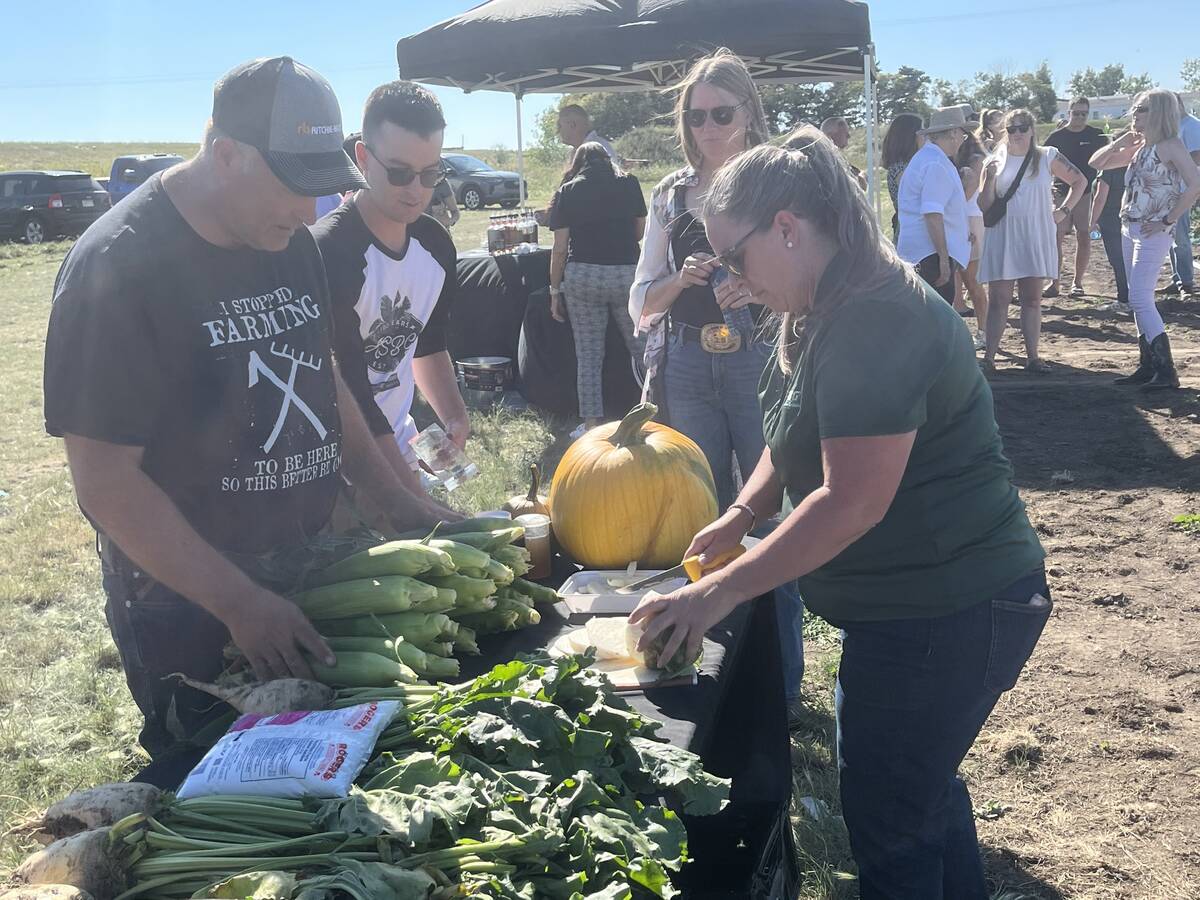Saskatoon’s Delta Bessborough hotel’s salon Batoche was down to standing-room only as farmers and ranchers filled the room for the cross-border livestock session at the Pacific Northwest Economic Region summit in July. The amount of interested people present at this session speaks to the uncertainty that producers are feeling right now while Canada and the US are stuck in limbo between NAFTA and the new United States Canada Mexico Agreement (USMCA).
Carlo Dade, director of the centre on trade and investment policy for the Canada West Foundation, opened the session by giving the current lay of the land of Canada, US, Mexico trade agreements.
Read Also

Alberta farm lives up to corn capital reputation
Farm to Table Tour highlighting to consumers where their food comes from features Molnar Farms which grows a large variety of market fruits and vegetables including corn, with Taber being known as the Corn Capital of Canada.
“We are undergoing major changes and difficulties in global trade. What’s missed in the day-to-day bombardment of trade friction after trade friction is a larger fundamental shift, a structural shift in the nature of trade here in North America,” he says. “Canada is proceeding with a path of win-win multilateral trade agreements. One agreement, several partners that puts benefits on the table for everyone engaged in the agreement. The Americans are moving instead to continue with old fashioned bilateral agreements with benefits that are limited to one partner only and that impose conditions that are anything other than win-win in the agreement.”
Despite the different directions of the two countries the U.S. remains Canada’s most important trading partner. And with the markets taking a hit over the last few years with Italy importing less durum wheat because of their country of origin regulations and pulse crop exports to India being stalled due to a disagreement on fumigation, it is even more important for Canadian farmers to have some certainty on the North America trade front, especially for an exporting province like Saskatchewan.
“If you are looking for our perspective on where things are, obviously we are very concerned as Saskatchewan is one of the leading exporting provinces,” says David Marit, Saskatchewan minister of Agriculture. “When you look at the trade relationship from the Saskatchewan perspective, we have a number of states in the U.S. that we actually do more business with than we do countries in other parts of the world and I think that is a significant thing.”
In his presentation Dade also talked about the rumours of the U.S. potentially scrapping NAFTA before the USMCA is ratified.
“Under the world trade organization rules, if you do not have a special bilateral agreement, you have to offer any country that is a member of the World Trade Organization (WTO) the same deal that you offer to every other WTO member,” says Dade. “So if the North America agreement ends the Americans will be forced to charge Canada and Mexico their world trade organization tariffs. Mexico will be forced to charge the U.S. it’s WTO most-favoured nations tariff, but not Canada. For Canada our tariffs will remain the NAFTA tariffs.”
He also says if this were to happen, it could potentially be beneficial for Canada to shift some of its trade focus to Mexico and utilize Canada’s class one railroads to capitalize on the tariff advantages.
Ryder Lee, who heads the Saskatchewan Cattlemen’s Association, says producers are tired of the uncertainty surrounding the border and would like a deal to get done one way or another.
“The neighbourhood that we are in right now is uncertainty of what’s next. And whether it’s between Canada and the U.S. or the U.S. and other parts of the world the impacts of announcements are dramatic and they are sudden,” says Lee.














